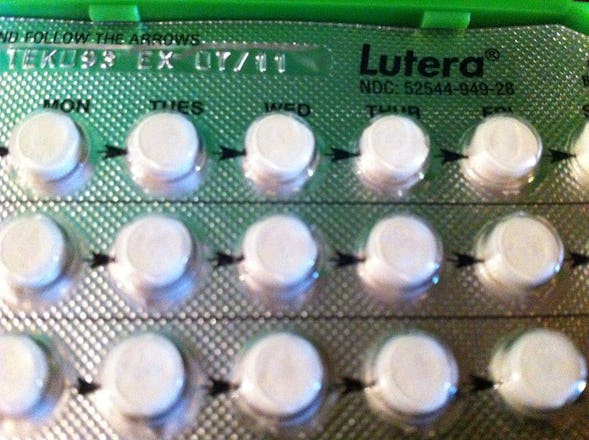2022-06-06
Pink tape’ at the FDA is delaying access to contraception — again
‘Pink tape’ at the FDA is delaying access to contraception — again


As the crisis over access to reproductive health deepens in the U.S., the Food and Drug Administration (FDA) has been quietly working with two pharmaceutical companies pursuing a historic breakthrough in expanding access to contraception: eliminating the unnecessary barrier of a prescription for the birth control pill, and allowing people to purchase it directly.
The safety and effectiveness of the pill has been well established during its 62 years on the market. That means the FDA has to decide only two things to move forward with making it an over-the-counter product: Can women understand the label on the packaging, and can they be trusted to follow the label instructions to determine whether these products are right for them?
Answering those questions seems straightforward. So why is the FDA moving at an excruciatingly slow pace?
Since most FDA processes are hidden from public view, it is instructive to examine the government’s history of bias and interference when evaluating an earlier contraceptive product for over-the-counter use.
Related: Can wearables turn temperature into a pregnancy test?
The last time the FDA approved a contraceptive product for over-the-counter use was in 2013, when it gave the green light to Plan B emergency contraception — which took 10 years of pressure to overcome political interference and social bias with science. I know because I had a front-row seat as a staff member working for then-senator Hillary Rodham Clinton (D-N.Y.) and later for Planned Parenthood Federation of America.
The process endured endless “pink tape” — the extra hurdles that women’s products must clear as a result of societal bias. This included the demand for multiple FDA applications, litigation, citizen petitions, and more. Two of the FDA’s medical panels ultimately recommended that Plan B be approved. For most pharmaceutical applications, that typically leads to full FDA approval. Instead, political leadership at the agency stepped in and overruled the experts.
For more than a year after that, public health advocates and elected officials urged the FDA to follow the recommendation of its experts. Exasperated, and with no end in sight, Clinton and Senator Patty Murray (D-Wash.) linked arms and blocked the confirmation of a new FDA commissioner for six months until they had assurances that the political interference would end. That prompted the approval of emergency contraception, but with an arbitrary age limit of 18.
After career scientists reviewed the evidence and recommended lifting the age requirement, political appointees intervened and overruled them. Once again, public health advocates had to organize and pressure and cajole the administration to follow the science. After nearly three additional years of organizing, science finally prevailed.
For all of this wrangling and delay, the sky has not fallen since Plan B has been sold on pharmacy shelves without a prescription since 2013. Instead, 24% of sexually active women of reproductive age now report having used emergency contraception, the safety of Plan B continues to be confirmed after nearly 10 years of over-the-counter use, and the testimonials from women who have benefited are powerful and inspiring. With states bracing for abortion to be banned within months, many are stocking up on Plan B.
Women have certainly proven they can understand a label and follow its instructions.
The Biden administration needs to learn from this experience and recognize the injustice of denying immeasurable health benefits by putting government barriers between women and contraception. It is critical that the new FDA commissioner, Robert Califf, treat these two oral contraceptive applications with the urgency and seriousness that women deserve.
The pill’s six-decade safety record, and its current use by more than 9 million women in the U.S. and more than 100 million worldwide, is astounding. Oral contraceptives are not toxic, not addictive, and have no risk of overdose, thus meeting FDA criteria for over-the-counter access. Other OTC drugs carry more serious risks, including pseudoephedrine, acetaminophen, antihistamines, diet pills, and aspirin, ibuprofen, and other NSAIDs. With respect to health benefits, studies show that the availability of the pill without a prescription will significantly increase its use and help people control their fertility.
With increased access to the most common form of reversible contraception, the rate of accidental pregnancies in the U.S. would decrease by 7% to 25%. No doubt this information led major medical groups, including the American College of Obstetricians and Gynecologists and the American Medical Association, to urge the FDA to consider making the pill available over the counter.
The Biden administration has repeatedly and clearly stated its commitment to follow the science. There must be no exception when it comes to the FDA’s consideration of over-the-counter oral contraceptives. Sen. Murray — the same Senator who wears the battle scars from Plan B — laid out her expectations clearly at Califf’s confirmation hearing, saying, “[W]hen it comes to women — women’s health, I do expect the FDA’s decision to be made based on science, just as I do all of FDA’s decisions. So, Dr. Califf, I will be watching…closely to make sure decisions are governed by the data, not by politics.”
Amen, sister. The Biden administration has the opportunity to learn from the Plan B debacle and approve the pill for over-the-counter use without delay. It just needs to take it.
Dana Singiser is a partner at Keefe Singiser Partners in Washington, D.C., and a co-founder of the nonprofit Contraceptive Access Initiative.



